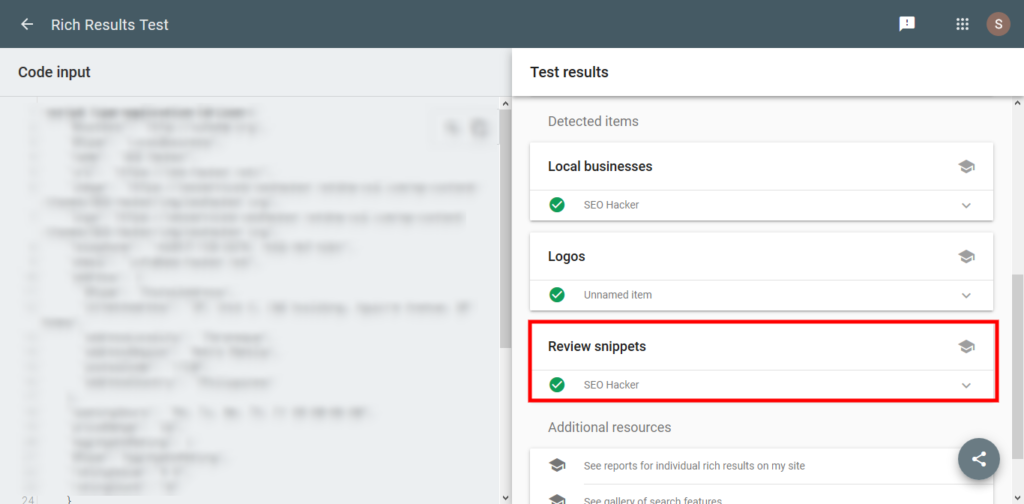Review Rich Snippets Now Available in Google Search Console Reports
Knowing what users and customers think of your business is an immense part of growing and increasing your business’ reputation. This is why such a large number of websites use the review or “AggregateRating” schema markup on their websites. Having a rating displayed or a short review is what most webmasters want since it makes their search engine listing look better than the rest which results in a click and a potential customer. However, tracking all the pages that have these review markups can be a hassle, especially if you have an eCommerce website that has thousands of products, all of them having a review schema that could lead to a review rich snippets. But Google has now released something that can help all us webmasters and SEOs.
Review Rich Snippets Report
In a recent post in Google’s Webmaster’s Blog, they announced that Google Search Console now enables support for Review Snippets. This means that you can view the reports to monitor the performance for your review rich results, how you can improve its performance, and to check the issues with how you applied the review structured data. This report might have stemmed from the fact that Google updated how their algorithm understands review rich results in the search listings. Here’s what it looks like in Google Search Console:
You can find the “Review Snippets” report in the sidebar under the “Enhancements” tab. As you can see, the report started tracking and displaying data last February 3. Additionally, through this tab, Google mentioned that after you fix an issue with your review structured data, you can use this report to validate your fix. This leads Google to re-crawl the error page and will verify if the fix you made is correct.
You can also now see the performance of the pages that have the review structured data in the performance tab of Google Search Console as announced by Google. However, when I tried it out for our business website, there were no choices for review snippets in the search appearance filter. As you can see in the screenshot below, Review Rich Snippet search appearance isn’t included in the choices.

However, I believe this can be attributed to the lack of data in Google Search Console since they only started tracking our website’s review rich results about a week ago. Hopefully, in the near future, the data becomes available so we can see how our pages that have the review rich result are really performing.
Lastly, Google mentioned that you can test out your Review rich results snippet structured data in their Rich results test tool. Through this tool, you can test the structured data or code of a page to check if it has any errors or if it needs improvements. Here’s what it looks like when I tested our business website’s structured data in the tool:
 As you can see, the review snippet structured data is complete according to Google. However, our search engine listing used to display the star ratings for our homepage, it has been quite a long time now since they were removed.
As you can see, the review snippet structured data is complete according to Google. However, our search engine listing used to display the star ratings for our homepage, it has been quite a long time now since they were removed.
While investigating it, I noticed that there was a difference between the review rich results structured data that Google uses as an example and the way we use the specific structured data type. The primary difference being that we use the “AggregateRating” structured data while Google uses the “reviewRating” structured data. In hindsight, there aren’t a lot of differences between the two, but we’ll be tinkering with these things a bit to check what does and what doesn’t and I recommend you do the same since Google already gave us everything we needed to play around with our structured data implementation.
Key Takeaway
This is not massive news from Google but it does help us better understand one of the most underrated factors inside our websites. Structured data implementation is a technique widely known by webmasters and SEOs but is severely undervalued in the industry. Through these updates in Google Search Console, hopefully, we’ll have a deeper understanding of how structured data can help improve our search presence and how properly implementing them could lead to wonderful results in the search market. What do you think about this recent addition to Google Search Console? Is it helpful or not? Comment it down below!


